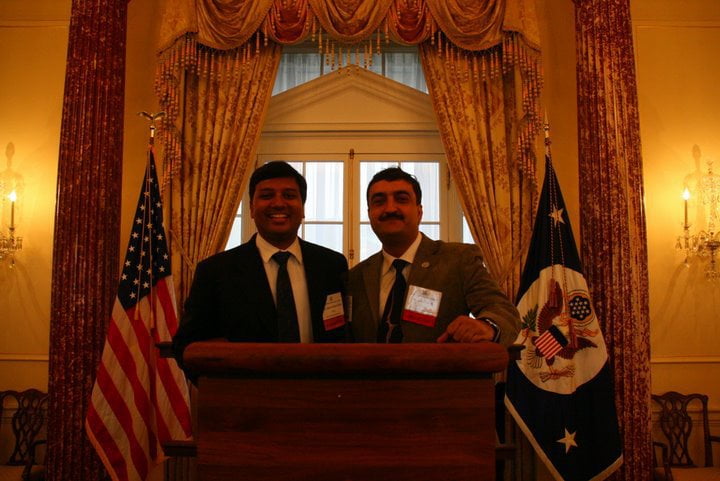Today is an important day for us because it is an important day for democracy. It is the foundation day of the oldest democracy, a day we better know as the American Independence Day (July 4). On this occasion, I would like to reflect upon a topic I am passionate about, “volunteerism” and its significant role in democracies with perspectives I gained from a visit to the US in 2010.
I had gone to the US as part of the International Visitor Leadership Program (IVLP), which the US Government describes as “the U.S. Department of State’s premier professional exchange program.” They, of course, organize other exchange programmes including the Fulbright program. Because of my work with Bakul Foundation in demonstrating the power of volunteerism, I had been selected to represent India to study volunteerism in the US with 100 other participants from as many countries. Needless to say, being in that group and going around interacting with the thought leaders on volunteerism in the US was a heady feeling: felt like being part of the United Nations. I also used the opportunity of a State Luncheon at the Benjamin Franklin State Dining Room to jokingly declare peace between India and Pakistan.

By interacting with the other participants from other countries, I also got to differentiate between how volunteerism worked in different countries and cultures. But all of us from across the world were unanimous, “volunteerism” as we understand it, was not as intrinsic or deep-rooted to our cultures as it was in the US. When I got to know that the US was founded after a revolutionary war fought with volunteer part-time soldiers, I was not surprised. But it was a big surprise to discover that California State had a Secretary (whom we call Ministers here) for Volunteerism. It was the first State in the US to do so followed by New York and other states. While interacting with Karen Baker, then Secretary of Volunteerism, it emerged that in the frequent fires in California, it was the volunteer firemen, who were the first to come out and help. Therefore, they realised that it was a huge resource that needed proper harnessing and required a separate department. A far cry from the importance we seem to give to volunteerism in our own state or country. I was lucky to be selected from the 100-odd participants to have a public discussion with Secretary Baker on the insights I had gained from my exposure to volunteerism in the US.
What I had been most impressed with was how professional they were about volunteerism. It is not something to be taken for granted just because people were not being paid for it. It was taken very seriously. I was also amazed at the scale of volunteer activities in which thousands of volunteers were engaged. In fact, inspired by it, particularly the idea of the Martin Luther King Day of Service, I started a national Day of Service in which we mobilized more than 1000 volunteers.
This premium on volunteerism was at all levels. When I visited non-profits, their statement of achievements would not only talk about the number of people impacted as NGOs mention in India, or their financial turnover, but also the volunteering hours they have harnessed. The Census not only records the population, but also data on volunteering engagements and cities are ranked on the basis of their civic engagements.
In fact, volunteering was seen as the most fundamental act of citizenship in their society and was an index of a healthy democracy. Democracy is not just about electing our representatives in power every few years. It’s about taking up matters of the public into our own hands. Unfortunately, we are still a democracy in progress as we expect the government to do everything for us. We are still somewhat feudal in that respect, though democracy has deep roots in India as well.
Benjamin Franklin, who is called “The First American” and was one of the Founding Fathers of the United States, believed that citizen service was essential to American democracy and founded its first volunteer fire agency. Franklin’s first civic action, interestingly was the Library Company in which he was also its Librarian in the initial years. Libraries were civic community spaces for people to gather, discuss ideas, educate themselves and initiate action.
Having started a movement for volunteerism that has public libraries as its manifestation, needless to say, I had felt much reassured about my path after my American sojourn. I was convinced that volunteerism was the pulse of the oldest democracy, and the heart started beating this very day, the 4th of July in 1776.


